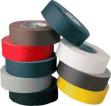This morning I was listening to Recode Media’s show with Jacob Weinberg of Slate. I was listening mainly because I agree with Mr. Weinberg when he says “I think this guy’s a menace and a danger to democracy”, but that’s not what I’m going to write about.
 There were two things that stood out in the interview. First off Mr. Weinberg mentioned he was working with a company called Panoply, a podcasting network. That’s great, we need more podcasting networks, but something he said didn’t sit well. Mr. Weinberg said part of what Panoply was doing was “tracking and advertising”. It sounds like this is going to become a reality. While checking into Panoply I also discovered ART19. Both sound like they’re creating systems that report back to them. How much of the show you’ve listened to, did you fast forward, rewind, or skip over the ads. It looks like ART19 has a way to update ads in a podcast episode so they never go stale. If this is something they can do using open standards, more power to them. If they have to create closed systems to pull it off, that’s not good for anyone, except them of course.
There were two things that stood out in the interview. First off Mr. Weinberg mentioned he was working with a company called Panoply, a podcasting network. That’s great, we need more podcasting networks, but something he said didn’t sit well. Mr. Weinberg said part of what Panoply was doing was “tracking and advertising”. It sounds like this is going to become a reality. While checking into Panoply I also discovered ART19. Both sound like they’re creating systems that report back to them. How much of the show you’ve listened to, did you fast forward, rewind, or skip over the ads. It looks like ART19 has a way to update ads in a podcast episode so they never go stale. If this is something they can do using open standards, more power to them. If they have to create closed systems to pull it off, that’s not good for anyone, except them of course.
Another thing Mr. Weinberg said was “Apple was the gateway to podcasting.” This simply isn’t true. Apple provides a free podcast directory service built on open standards. Apple is not a gateway to podcasting.
To make a podcast is really, really, simple. You record something, upload it, and make an RSS feed so people can subscribe and you’re done. That’s the 20,000 foot view, but that’s how you do it in a nutshell. You don’t need Apple to publish a podcast. Let me say that again. You don’t need Apple to publish a podcast. You need some shared drive space; Dropbox, Google Drive, your own web host, any number of companies can provide you cloud space to keep files and share them.
Having Apple’s Podcast Directory is super nice. They supported podcasting long before it was popular and chose to use open standards, like RSS. RSS supports namespace extensions, so Apple created their own. They used an open standard and an open extension mechanism to create their directory.
Knowing that, can you call Apple the gateway to podcasting? No. Definitely not. Anyone can create their own podcast directory using RSS feeds. In fact, others have, like iPodder. It just so happens Apple’s directory became super popular once they had a built in audience due to the popularity of the iPhone.
Having said all that. If you want to get into podcasting, go for it. You will probably want to list your podcast on a few different directories, including Apple’s, but that’s something for you to decide. Just make sure you know what you’re getting into.
 Record yourself talking about something, anything. Most computing platforms have some way to record your voice.
Record yourself talking about something, anything. Most computing platforms have some way to record your voice. I love me some ATP. The guys consistently teach me something and I really love it when John and Marco get into their rants about the Mac Pro. If you’re not subscribed go subscribe now.
I love me some ATP. The guys consistently teach me something and I really love it when John and Marco get into their rants about the Mac Pro. If you’re not subscribed go subscribe now. I’ll admit, at first I was a bit miffed by how they couched their apps as Premium, maybe it was a bit of sour grapes on my part, but the more I listened the more I realized they were right, they do make premium apps. Once I got past that idea I was able to focus on what they were after; a Premium App Store.
I’ll admit, at first I was a bit miffed by how they couched their apps as Premium, maybe it was a bit of sour grapes on my part, but the more I listened the more I realized they were right, they do make premium apps. Once I got past that idea I was able to focus on what they were after; a Premium App Store.